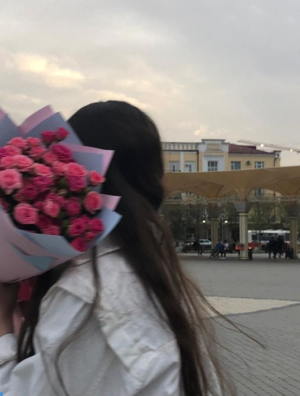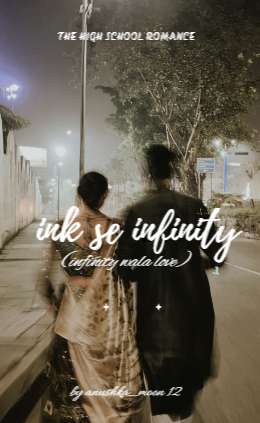Arthur's POV
I couldn't sleep that night.
Even after she left the study... even after I heard the gentle creak of her door closing... I sat in my chair for what must have been hours. The lamp hissed softly beside me. The ink on the paper before me had long since dried. My fingers still clutched the edge of the desk.
Vrindavan.
The name echoed in my mind like a distant bell—soft, sacred, unknowable.
She wanted to go there. Not because she craved freedom, but because she believed I needed it. Because she feared that the same people who once dragged her to the edge of fire might come again—and this time, perhaps they would come for me too.
A part of me—perhaps the weakest part—wanted to stop her.
To tell her she was safe here. That this house only began to breathe the day her silence filled it. That I had forgotten what comfort even felt like—until she lit that oil lamp in the kitchen each evening.
But I didn't.
Because she wasn't wrong.
This world had already been cruel to her once. And it could be again. Especially if her presence here became a reason for trouble—for her, for me, for everyone.
So, I did the only thing I could.
I began planning.
By morning, I was back at my desk—this time not out of duty, but out of determination. I pulled out a fresh sheet of paper, opened my travel map, and began taking notes.
Vrindavan – Mathura District, United Provinces.
I had only read about it in cultural reports—somewhere along the Yamuna River. A town steeped in devotion. Krishna's name echoing through its narrow lanes like breath. Ashrams, temples, widows in white, chants rising with the smoke of morning aartis.
The Commissioner had once mentioned it during a survey—a place where widows go to disappear from the world... and appear in the eyes of their god.
It didn't sound luxurious.
It didn't sound comfortable.
But it sounded like peace.
And perhaps, that's what she deserved now.
I sighed, rubbing the bridge of my nose. My head still ached from yesterday's journey, and I had barely eaten. But this task—this was more important.
If she had made up her mind to leave, then I wouldn't let her go blindly into uncertainty. No more walking into pain. No more being forced.
This time—her journey would be safe. Dignified.
I sent a discreet telegraph to Agra, requesting updated records of ashrams in Vrindavan accepting new entrants. I kept it anonymous—no names, no context. Just official interest.
Then I pulled out a contact from my early years—an old missionary family who had once supported an orphanage in Mathura. They would know the truth behind the flowered words of the brochures. I needed facts—not fiction.
I spent the next hour writing a letter to Mr. Elijah Parker, an English missionary posted in Mathura. I knew it might seem strange—a British officer inquiring about widow shelters—but I didn't care.
Let them find it odd.
Let them whisper behind my back.
I only needed answers.
By noon, I heard her footsteps outside the study again—soft and hesitant.
She was peeking in. I noticed her shadow first, then the delicate flutter of her dupatta. She thought I couldn't see her.
But I did.
And when I turned—just slightly—she vanished from view like a startled fawn.
A strange warmth bloomed in my chest.
The second time she peeked in, I didn't move. I sat perfectly still, pretending to read a file.
I waited.
And right on cue, her silhouette returned. Just her fingers curling around the edge of the doorframe, her head barely tilted, catching a glimpse of me.
This time, I acted.
I rose from my chair and quietly moved toward the doorway. When she peeked in again, I gently caught her wrist.
She gasped—eyes wide like a child caught stealing sweets.
"Peeking again, are we?" I said with a faint smile.
She tried to pull her hand away, flustered.
"Main... main bas puchhne aayi thi kuchh..."
(I... I just came to ask something...)
"Achha? What did you want to ask?" I asked softly.
She hesitated. Then in a whisper, she said—
"Woh... main yeh puchhne aayi thi ki... aap mujhe chhodkar aayenge na?"
(I just wanted to ask... you will come to drop me there, right?)
She lowered her eyes, cheeks flushed.
Such a simple question. But gods—how I wanted time to freeze in that moment.
The way her innocence lingered on her face. The way the light kissed the soft lines of her hands.
It made this dusty, war-torn house feel like a home I never thought I'd deserve.
I slowly released her wrist.
She turned to leave, clearly embarrassed. But just before exiting the room, she murmured—something so quiet I barely caught it.
Something that made me feel like I was standing in the center of a storm and a prayer all at once.
She deserved to laugh again.
To wake without fear.
To walk through the world without flinching from whispers or stones.
And if that meant I had to carry the ache of her absence in my chest forever—so be it.
Because sometimes...
Loving someone means letting them go where they can finally live.
Even if they never look back.
The next morning, a courier arrived just after sunrise.
I recognized the seal even before I opened the envelope—thick, aged parchment, sealed in red wax with the familiar crest of the Parker Mission. Elijah's.
My fingers paused over the edge. I knew this letter would bring clarity. I hadn't expected it to bring a storm.
I carried it to my study in silence, shut the door behind me, and let the world fall away.
The seal cracked under my thumb. Inside, Elijah's handwriting stretched across the page—steady, thoughtful, and far heavier than ink alone could explain.
"My dear Arthur,"
"I write to you not only as a colleague, but as a friend who understands what is unspoken between the lines of your letter. I understand why you ask about Vrindavan. And I wish I could give you the peace you're searching for. But it grieves me deeply to say—I cannot."
"The region is no longer safe."
"Anti-British sentiment is rising—sharply, violently. Mathura is burning, not with fire, but with fury. Farmers, tribals, students... even temple priests have joined the resistance. Pamphlets declaring British officers as 'foreign poison' are being nailed to doors in broad daylight. Our men are being pulled from streets, beaten, driven out."
"Even Vrindavan—once a place of sanctity and silence—has not remained untouched. Two incidents have occurred recently: one involving a patrolling officer, another a foreign missionary who was nearly killed by a mob while distributing aid near the ghats. Ashrams that once welcomed widows without question are now closing their gates, fearing violence from both sides."
"Suspicion clouds every corner. Even Indians suspected of sympathizing with the Raj are treated as spies. There is no refuge left."
I read it once.
Then again.
And again.
The words blurred and sharpened, blurred and sharpened, until all I could feel was the ache rising in my chest.
No refuge.
Not even in the holy city she had dreamed of.
I rose and moved toward the window. Outside, the light had changed. The morning had come in quietly—golden and uncertain.
The letter still sat in my pocket, its words like cold iron pressed against my chest.
I didn't waste another moment.
Morning light crept through the windows as I crossed the corridor, making my way toward her room. She sat by the window, still as the breeze that stirred the curtain beside her. Her gaze was fixed on the horizon—on something far beyond the garden walls.
The sunlight kissed the side of her face, illuminating the delicate curve of her jaw, the softness of her profile, the distant look in her eyes.
I stood in the doorway longer than I should have.
But I owed her honesty.
I stepped inside.
"Meera," I said gently.
She turned slowly, her eyes lifting to meet mine—calm, curious, quietly trusting.
And it nearly undid me.
I sat down across from her, careful to keep my voice steady.
"I made the arrangements," I began. "I reached out to someone I trust—someone familiar with the widow ashrams in Vrindavan. I had hoped... hoped to find a place where you could be safe. At peace."
Her fingers went still where they rested on her saree.
"But today, I received a letter."
She didn't speak. She only waited, as if bracing herself.
"There's unrest," I said quietly. "An uprising in Mathura... in Vrindavan. The locals aren't just turning against the British—they're growing suspicious of Indians too. Anyone they believe might be aiding us. Protests, attacks... even the ashrams have closed their doors. They're no longer a sanctuary—not even for the women they were meant to protect."
I paused, the words heavy between us.
"It isn't safe, Meera," I said finally, my voice rougher than I intended. "Not for you. Not now."
Her lips parted slightly, and though I saw the shadow of disappointment flicker in her eyes, she didn't protest. She only asked softly,
"Toh ab kya hoga?"
("So what happens now?")
I leaned forward, gently.
"You'll stay here," I said softly. "And if you ever feel uncomfortable... in any way—tell me. Please. I'll do whatever I can to make things right. This isn't a command, Meera. It's... it's just what I believe is safest for now."
She lowered her gaze, fingers tightening slightly around the edge of her shawl. For a heartbeat, I thought she might say nothing at all.
But then, in a voice so soft I almost missed it, she whispered—
"Jii."
Just that. A single word.
Quiet. Accepting. Trusting.
It wasn't submission.
It was something far deeper.
A small nod to faith... in me. In whatever fragile thread was growing between us.
And I knew—no matter what the world outside became—I would protect that thread with everything I had.
*************************************
if you enjoyed reading, please tap that vote button!🥰
And do leave a comment to share your feelings about the story.
How did you find this part? I really hope you loved it!🫶
I'd love to hear your thoughts—any reviews or suggestions are most welcome.🎀
which part you liked most ??
love you all🎀🫶


Write a comment ...